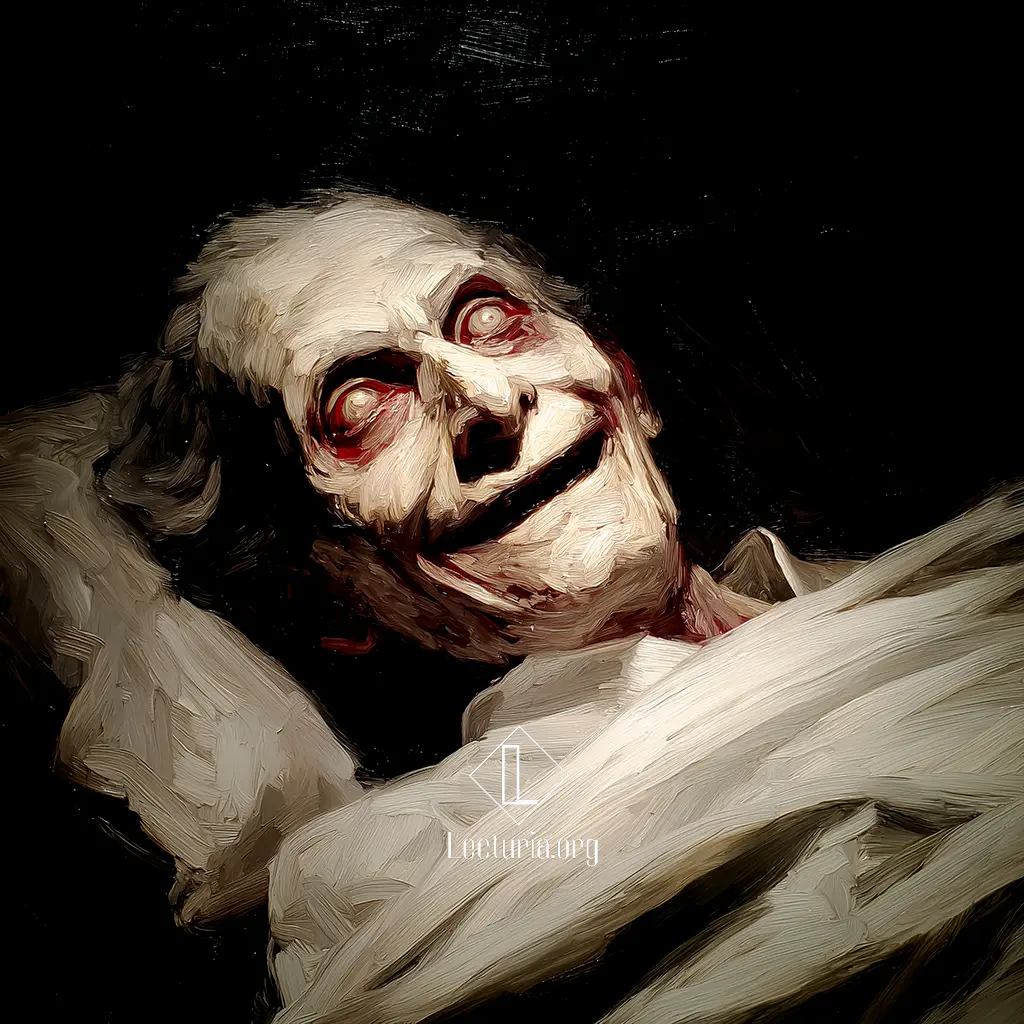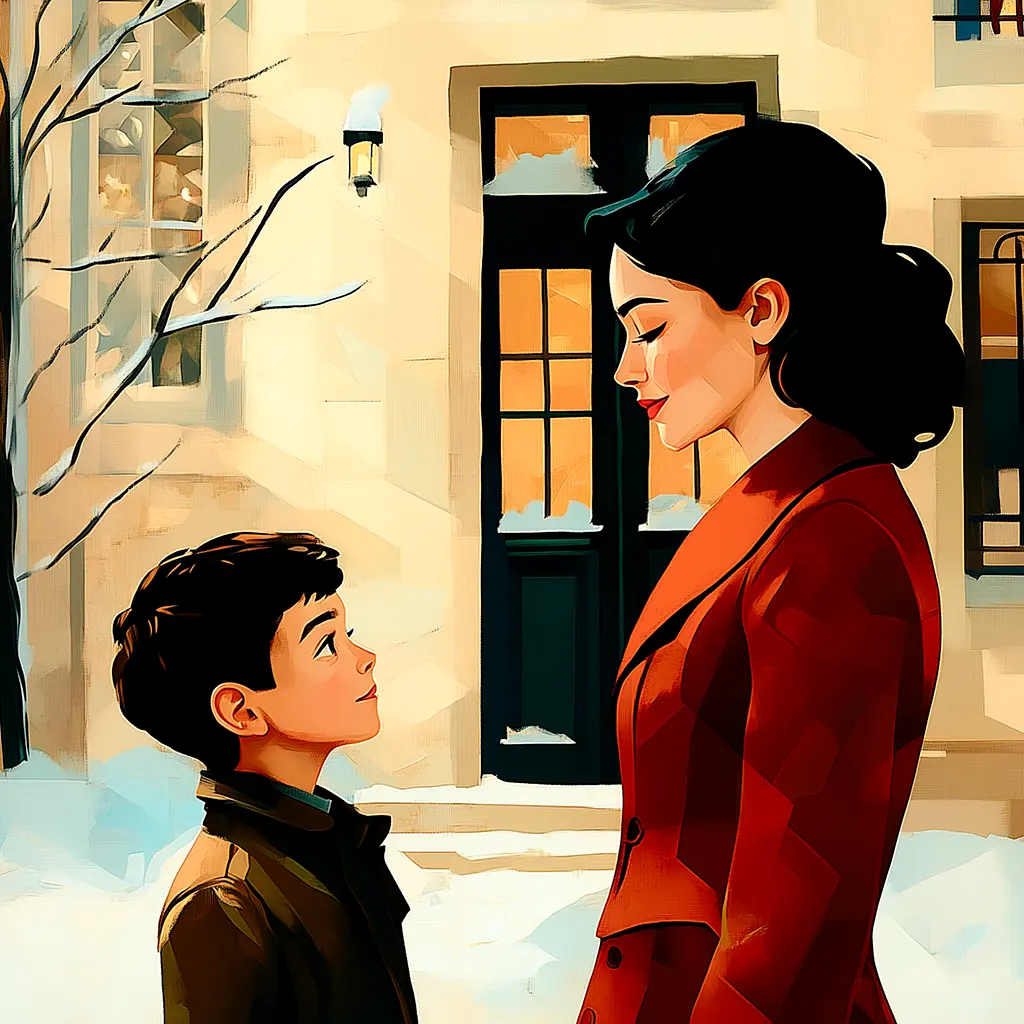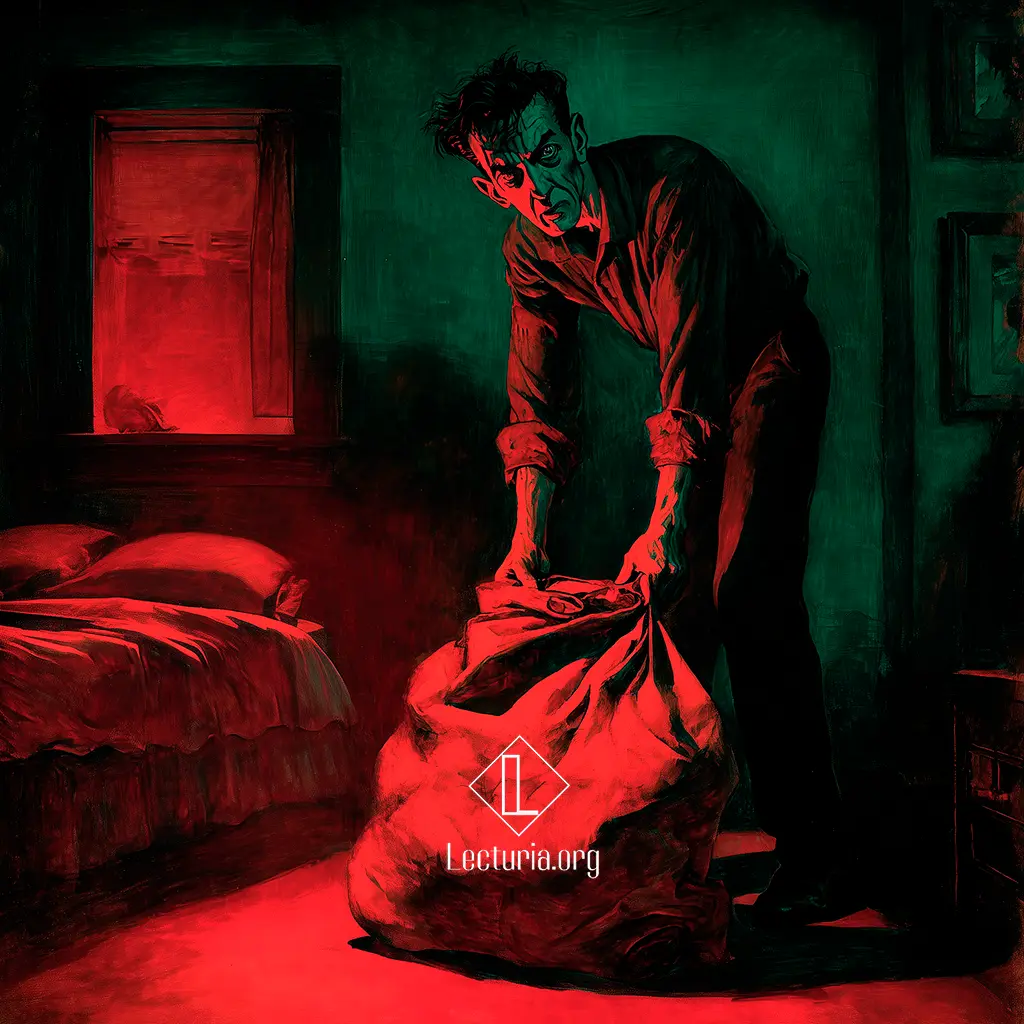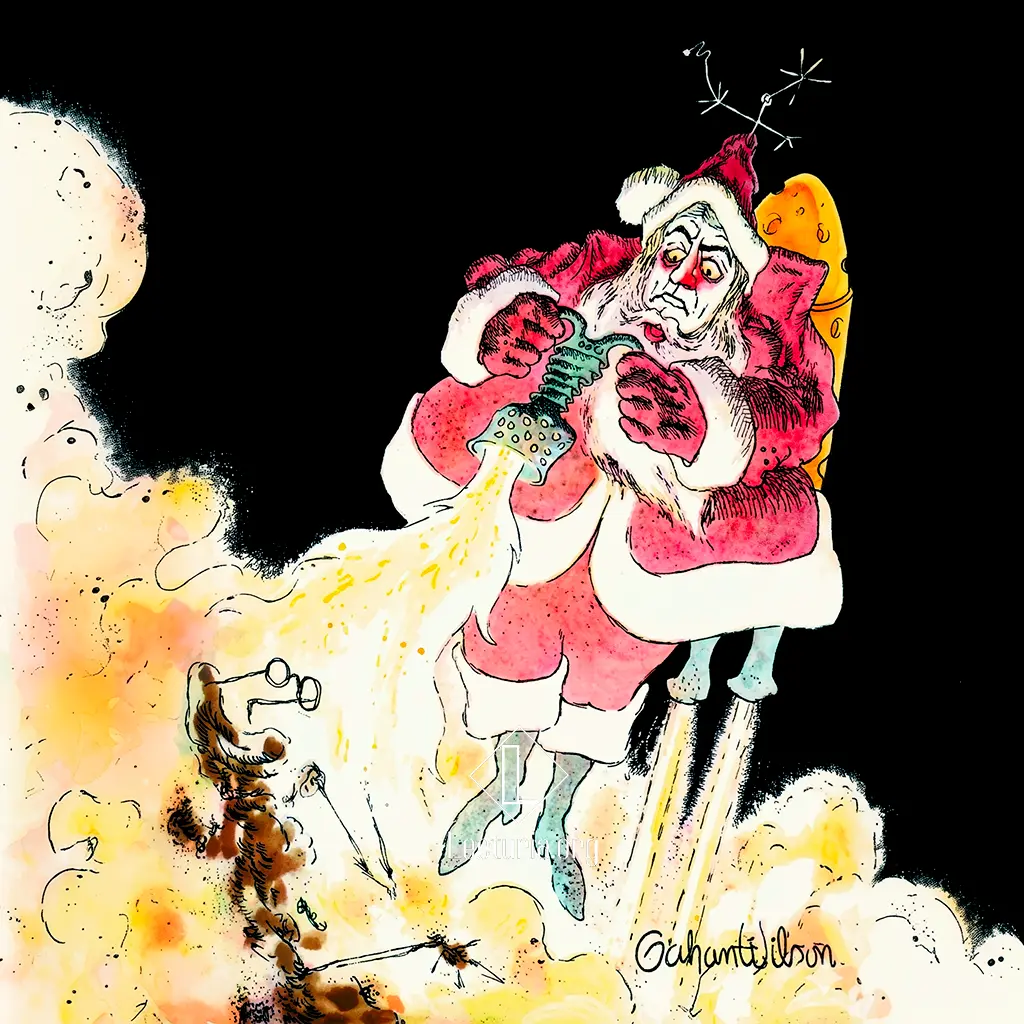F. Marion Crawford: The Dead Smile
“The Dead Smile” is a short story by F. Marion Crawford, first published in August 1899 in Ainslee’s Magazine and later included in the collection Uncanny Tales (1911). Set in an old Irish mansion, it unfolds the unsettling tale of the Ockrams, a family burdened by a cursed inheritance. Before his death, Sir Hugh—an old man both cruel and merciless—utters cryptic warnings to his son Gabriel and to his niece Evelyn, who intend to marry. Yet he takes his secret to the grave. From that moment on, the young couple’s happiness is overshadowed by a growing threat and an insistent summons that seems to rise from the family crypt itself.





